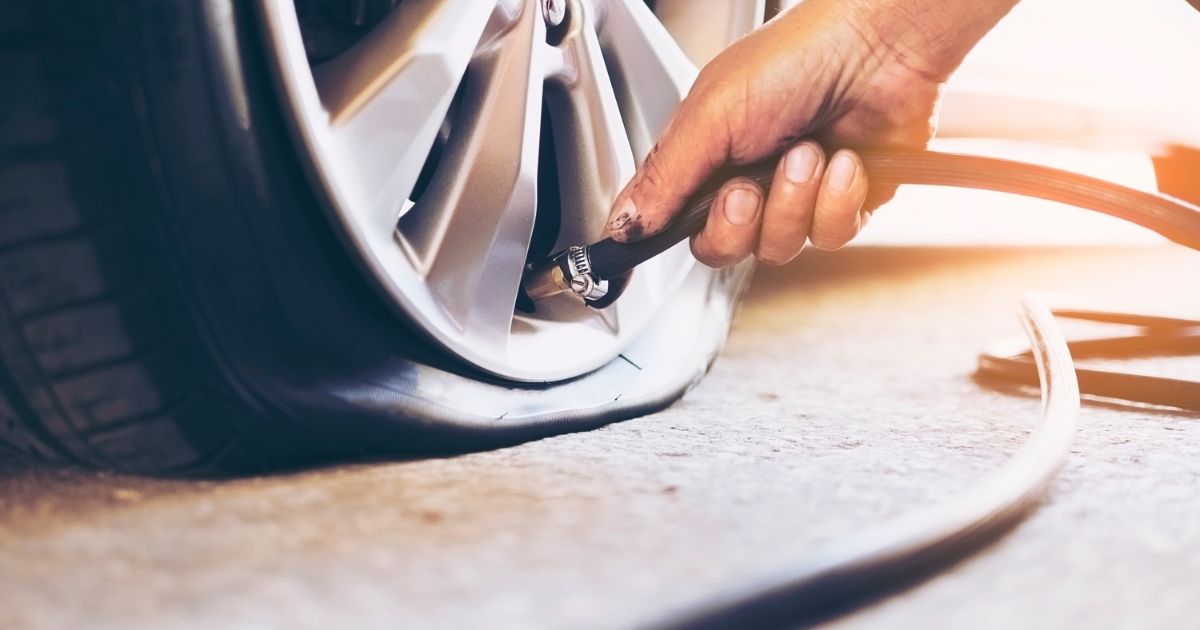Can Under Inflated Tires Increase the Risk of a Car Accident?

The fluctuation in temperature that is characteristic of winter weather can affect your vehicle’s performance, particularly your tires. Maintaining the proper tire pressure is imperative for maintaining stability, control, and grip when driving in inclement weather. When the temperature drops, the air pressure in the tires drops significantly, which can increase the risk of a serious car accident. If you were injured in a car accident involving another motorist who was driving on under inflated tires, contact an experienced car accident lawyer at your earliest convenience.
How Does the Cold Weather Impact My Vehicle’s Tires?
The drop in temperature causes the tire’s air pressure to drop an average of one to two pounds per square inch of tire pressure for every ten degrees that the temperature decreases. It is highly recommended that you check your vehicle’s air pressure as soon as the weather changes and the temperatures drop to ensure that your tires are performing properly.
What Are the Dangers of Driving with Under Inflated Tires?
According to the National Highway Traffic Safety Administration (NHTSA), close to one-third of all passenger vehicles, light trucks and SUVs on the road have at least one underinflated tire. The NHTSA also found that blown tires are responsible for an average of 11,000 car accidents each year, resulting in approximately 200 fatalities. If you do not maintain the optimal air pressure in your vehicle’s tires, there is an increased risk of the following consequences:
- Tire blowouts: When a tire is under inflated, the friction between the tire and the road builds up and creates heat. While tires are built to withstand a certain amount of heat, the tire can explode if the heat reaches an unsafe degree. The driver is at risk for losing control of the vehicle, swerving into another lane, and cutting off or crashing into other drivers on the road.
- Reduced traction: Under inflated tires are less effective at maintaining effective traction on wet, snowy or icy roads. Underinflation can have a negative impact on the effectiveness of the vehicle’s automatic traction control and anti-lock braking system.
- Compromised safety and operation: Under inflated times generally do not perform as they should. In addition to tire blowouts, a softer tire sidewall can cause your car to sway on a curve or corner, which can increase the risk of a rollover, particularly in vehicles with a higher center of gravity. It is also more difficult to steer if the tires are under inflated.
- Wear and tear: When the tires are under inflated, they are more likely to wear out or bald much more quickly. Bald tires have less traction and are more likely to slip on slide on snowy or icy roads.
How Is Fault Determined in a Weather-Related Car Accident?
If you were injured in a car accident during the winter months, there are a range of factors that will be considered when determining fault. For example, if the other driver failed to properly maintain his or her vehicle, including the tires, they may be held liable for the accident. Other unsafe driving behaviors that would cause the other driver to be considered at fault for an accident include speeding, tailgating, texting while driving, or weaving in and out of lanes. A skilled car accident lawyer will review the details of the case and recommend the best legal course of action.
Springfield Car Accident Lawyers at Kicklighter Law Represent Victims of Weather-Related Car Accidents
If you were injured in a car accident, and the other motorist’s tires were under inflated, contact our knowledgeable Springfield car accident lawyers at Kicklighter Law. To schedule a confidential consultation, call us today at 912-754-6003 or contact us online. With our offices located in Springfield, Georgia, we proudly serve all clients of Springfield, Effingham County, Savannah, and surrounding areas.
